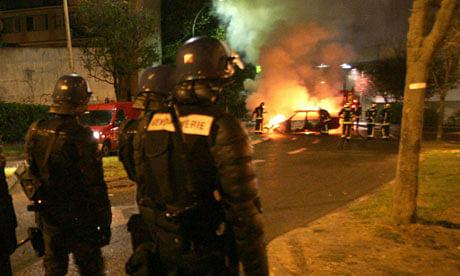

France has embarked on an ambitious plan to remake Paris -- and, in the process, solve its suburbs problem. On Jan. 1, 2016, Paris, along with Clichy and more than 120 of its closest suburbs, will be enfolded into the Métropole du Grand Paris, an ambitious but still ill-defined project to create a sort of uber-city -- an overarching metropolitan government for the greater Paris area, encompassing around 7 million inhabitants and over 270 square miles. — Foreign Policy
This ambitious project will be the first of its kind in the world, one that planners hope can become a model for other cities. The Parisian suburbs – or banlieues – are notoriously underprivileged. Generally, Paris and its environs are markedly economically segregated: the central city is basically unaffordable to all but the very rich. Meanwhile, the suburbs – such as Clichy-sous-Bois (Clichy, for short) – tend to lack cafes, markets, train stations, and other trappings of vibrant urban life. A few years ago, Clichy and other poor suburbs gained notoriety after violent riots broke out.
By enfolding the suburbs and the central city into one giant Métropole, Parisian officials hope to mitigate the dire conditions of the former. With a shared tax base, the suburbs would get much need revenue for infrastructure and other urban projects. Moreover, the plan would hopefully reduce the notorious mess of the current bureaucracy.
More importantly, the Métropole would work in opposition to many of the issues that originally generated the extreme disparity currently defining the metropolitan region. In the 50's and 60's, developers built high-rise towers in the suburbs intended to be for middle-class workers. But when a planned highway was never built, the isolated towers were rented at low-prices, primarily to immigrants. Later, the apartment owners fled and sold the buildings to "slum-lords" who allowed them to fall into disrepair. In contrast, the Métropole would re-link areas via new public transportation. Moreover, it would mandate low-income housing to be scattered throughout the city, including in areas of extreme wealth, which will theoretically lessen the current economic segregation.
But, as the article notes, 2016 is a long way away for those currently isolated in these under-served communities.
1 Comment
As to connecting the suburbs to public transit-- does France have the same issues of NIMBY-ism that plague the US?
Block this user
Are you sure you want to block this user and hide all related comments throughout the site?
Archinect
This is your first comment on Archinect. Your comment will be visible once approved.